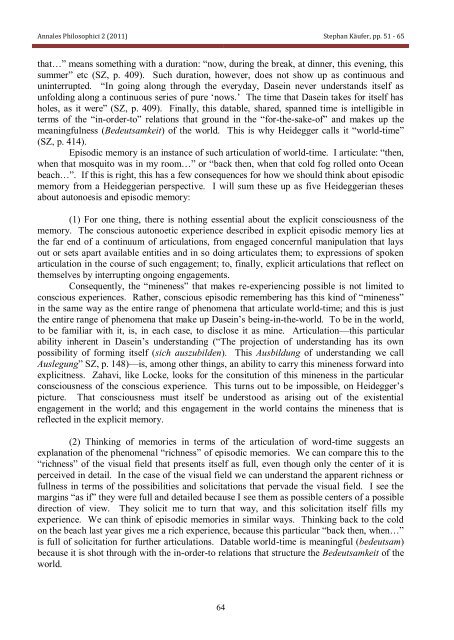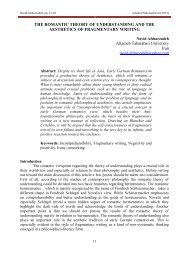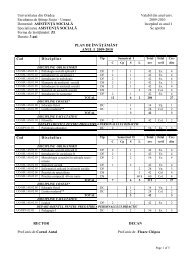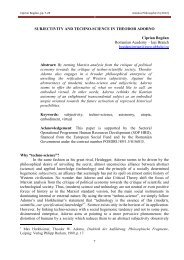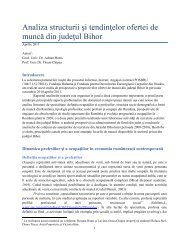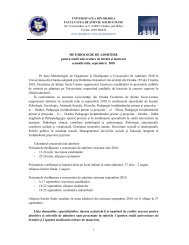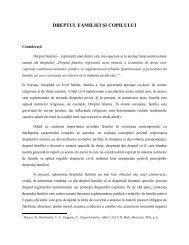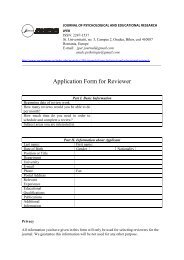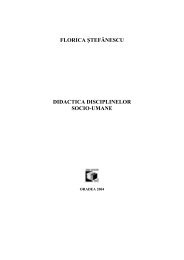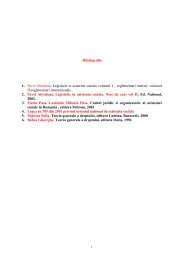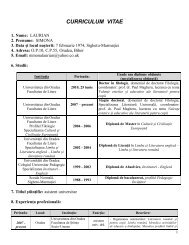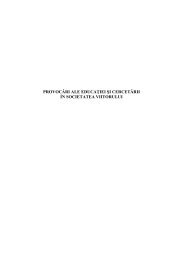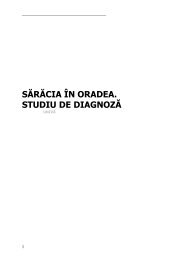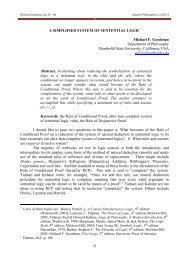Stephan Käufer: HEIDEGGER ON MINENESS AND MEMORY
Stephan Käufer: HEIDEGGER ON MINENESS AND MEMORY
Stephan Käufer: HEIDEGGER ON MINENESS AND MEMORY
Create successful ePaper yourself
Turn your PDF publications into a flip-book with our unique Google optimized e-Paper software.
Annales Philosophici 2 (2011) <strong>Stephan</strong> <strong>Käufer</strong>, pp. 51 - 65<br />
that…‖ means something with a duration: ―now, during the break, at dinner, this evening, this<br />
summer‖ etc (SZ, p. 409). Such duration, however, does not show up as continuous and<br />
uninterrupted. ―In going along through the everyday, Dasein never understands itself as<br />
unfolding along a continuous series of pure ‗nows.‘ The time that Dasein takes for itself has<br />
holes, as it were‖ (SZ, p. 409). Finally, this datable, shared, spanned time is intelligible in<br />
terms of the ―in-order-to‖ relations that ground in the ―for-the-sake-of‖ and makes up the<br />
meaningfulness (Bedeutsamkeit) of the world. This is why Heidegger calls it ―world-time‖<br />
(SZ, p. 414).<br />
Episodic memory is an instance of such articulation of world-time. I articulate: ―then,<br />
when that mosquito was in my room…‖ or ―back then, when that cold fog rolled onto Ocean<br />
beach…‖. If this is right, this has a few consequences for how we should think about episodic<br />
memory from a Heideggerian perspective. I will sum these up as five Heideggerian theses<br />
about autonoesis and episodic memory:<br />
(1) For one thing, there is nothing essential about the explicit consciousness of the<br />
memory. The conscious autonoetic experience described in explicit episodic memory lies at<br />
the far end of a continuum of articulations, from engaged concernful manipulation that lays<br />
out or sets apart available entities and in so doing articulates them; to expressions of spoken<br />
articulation in the course of such engagement; to, finally, explicit articulations that reflect on<br />
themselves by interrupting ongoing engagements.<br />
Consequently, the ―mineness‖ that makes re-experiencing possible is not limited to<br />
conscious experiences. Rather, conscious episodic remembering has this kind of ―mineness‖<br />
in the same way as the entire range of phenomena that articulate world-time; and this is just<br />
the entire range of phenomena that make up Dasein‘s being-in-the-world. To be in the world,<br />
to be familiar with it, is, in each case, to disclose it as mine. Articulation—this particular<br />
ability inherent in Dasein‘s understanding (―The projection of understanding has its own<br />
possibility of forming itself (sich auszubilden). This Ausbildung of understanding we call<br />
Auslegung‖ SZ, p. 148)—is, among other things, an ability to carry this mineness forward into<br />
explicitness. Zahavi, like Locke, looks for the consitution of this mineness in the particular<br />
consciousness of the conscious experience. This turns out to be impossible, on Heidegger‘s<br />
picture. That consciousness must itself be understood as arising out of the existential<br />
engagement in the world; and this engagement in the world contains the mineness that is<br />
reflected in the explicit memory.<br />
(2) Thinking of memories in terms of the articulation of word-time suggests an<br />
explanation of the phenomenal ―richness‖ of episodic memories. We can compare this to the<br />
―richness‖ of the visual field that presents itself as full, even though only the center of it is<br />
perceived in detail. In the case of the visual field we can understand the apparent richness or<br />
fullness in terms of the possibilities and solicitations that pervade the visual field. I see the<br />
margins ―as if‖ they were full and detailed because I see them as possible centers of a possible<br />
direction of view. They solicit me to turn that way, and this solicitation itself fills my<br />
experience. We can think of episodic memories in similar ways. Thinking back to the cold<br />
on the beach last year gives me a rich experience, because this particular ―back then, when…‖<br />
is full of solicitation for further articulations. Datable world-time is meaningful (bedeutsam)<br />
because it is shot through with the in-order-to relations that structure the Bedeutsamkeit of the<br />
world.<br />
64


